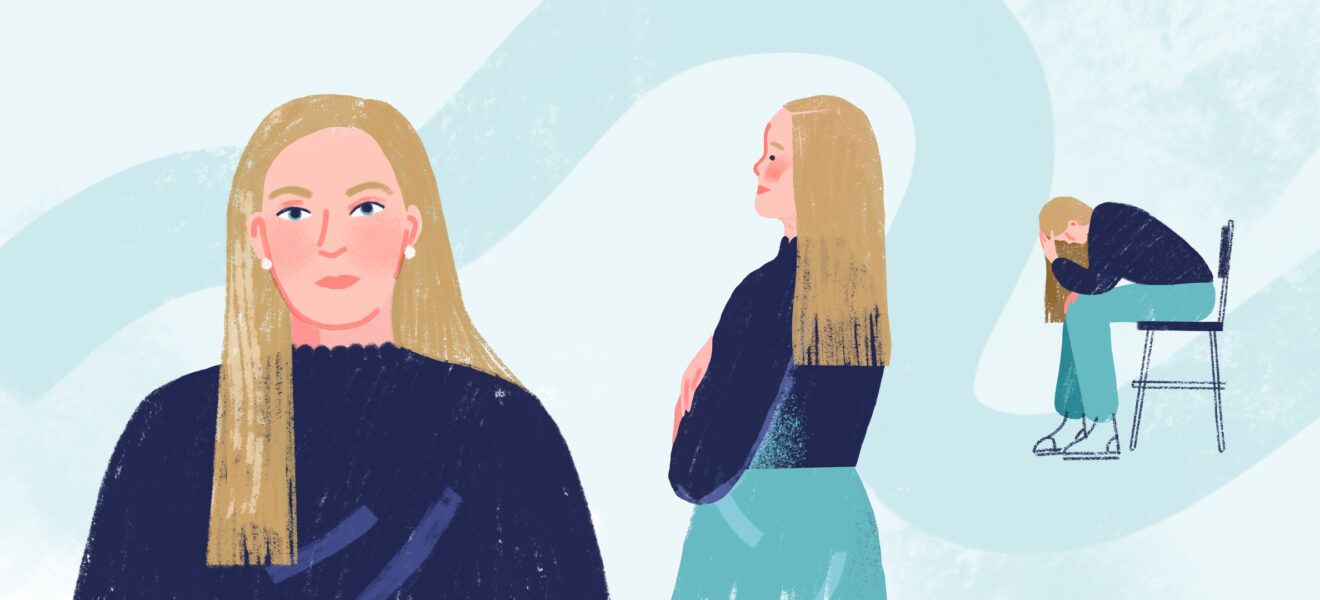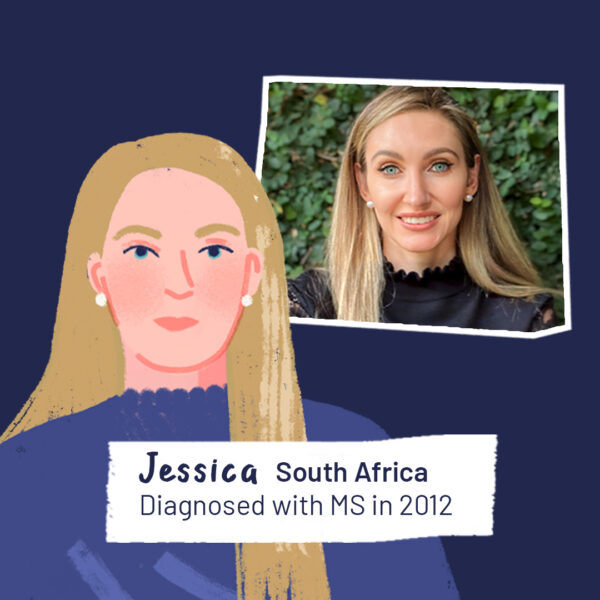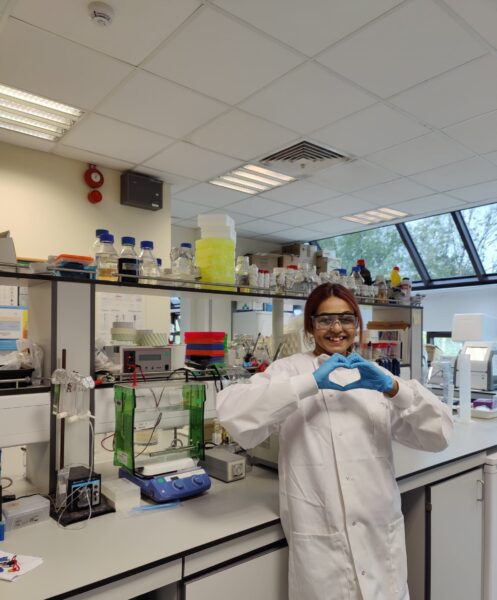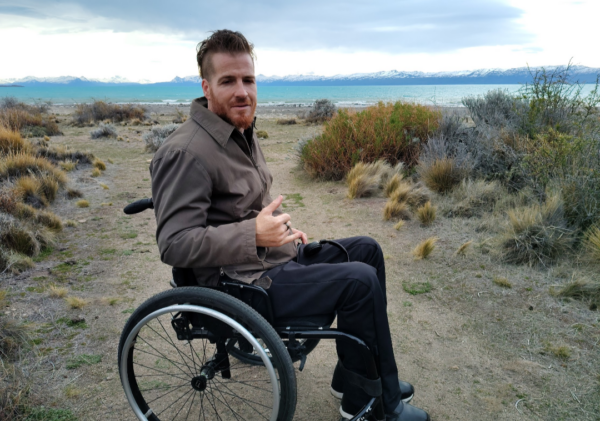When you’re diagnosed the world keeps spinning but you feel like time has stopped
Jessica from South Africa looks back at her diagnosis, reflecting on the challenges she faced and the process of adapting to a new life with MS. She talks about the following years as a huge time of growth, adaption and mourning. Read her story and find out what she would say to someone just diagnosed with MS:
“Hi, my name is Jessica and I was diagnosed with relapsing remitting MS about 12 years ago. I was misdiagnosed a number of times before I ultimately received my diagnosis. I was 22 and studying towards my postgraduate degree in psychology. Our honours programme was particularly demanding, and I remember going to lectures feeling very nauseous and fatigued, with frequent migraines. I was surviving on energy drinks and sheer will power. But as anyone with MS knows you just cannot override that fatigue, no matter how determined you are.
The whole year was super difficult. When it came to my June exam period I woke one morning with sensory loss in my left hand and arm. It was sudden and just the most strange thing. I went to the GP and they said maybe you pinched a nerve. They gave me some anti inflammatories told me to keep going, so I kept studying.
After about a week I started to lose strength in my arm and experience a deep, severe nerve pain. I went to a renowned academic hospital in Pretoria. I remember the Doctor looking at me like I was in a medical drama, again concluding it was a pinched nerve. At this point my hand resembled a claw, in a total spasm and lost all strength.
I went home for the holidays, and my leg started with loss of all sensation and gradually got weaker. I proceeded to see a fourth General Practitioner who is quite an exceptional diagnostician. He sent me that day for an MRI, and immediately got results. The next morning, he sent me to a MS specialist. Then I had all the blood tests and all of that to confirm my MS. The drive was seriously nerve wracking as I was totally in the dark about what MS was.

The main challenge to diagnosis was a seeming unawareness of the general practitioners. I am surprised none of them checked for auto immune markers in my blood tests or ordered an MRI sooner. It wasn’t a lack of access to funds or access to the MRI, it was a lack of the doctors asking for it. I also had very poor access to information, even when I was diagnosed. A general google search was not helpful because it’s like it can cause X-Y-Z – google just terrifies you. My neurologist was very kind and spoke me through everything he could.
Being diagnosed with MS is one of those defining moments in your life, the moments you think of as before and after. It was incredibly hard going through this at 22, supposedly in the prime of your life. I was very young and it was lonely because nobody else really knew what it was. I remember it being a very scary time. It’s not as if you get the diagnosis and now all is well. No, you have to deal with side effects of the medications in hospital. I had to learn to walk and use my hand again, spending hours with biokinetics and physiotherapists.
My family, particularly my parents, really got me through the next few years. I would love to say it was a matter of diagnosis and then onwards and upwards, but with MS it really is usually hardest for a few years before you hopefully stabilise, learn to manage it, and get the right treatment.
When you’re diagnosed the world keeps spinning but you feel like time has stopped. You’re just standing there and everybody’s still living. You’re like, really? Did this just happen?
The next two years were huge years of growth, adaption and mourning. Mourning who I was and what I had lost. Becoming a new version of myself within my new reality and adapting to my limitations.
The words that come to mind for my diagnosis are grief, loneliness, isolation, paralysing fear, desperation and on some level, trauma. But now when I look back, I also see myself and the life I’ve built. I feel I had courage, optimism, resolve, generosity, compassion for myself and kindness. Luckily, studying psychology helped me understand that I also needed to build a new identity for myself, and importantly not one defined by MS. Yes, I have MS but I am also this whole, complex and interesting person beyond this disease. I can still matter, and I can still live.
I think it’s important to speak to someone that you trust, whether it’s a professional or someone you love. To find courage and hope and work through those feelings of grief that you’re going through. One of the main things for me at my young age was saying goodbye or to certain dreams or expectations I have. But now that I’ve realised, looking back, some of those things were still for me.
I don’t think there is anything I could say to someone recently diagnosed that takes the grief and hardship out of the journey but there are a few things I wish I knew. I wish I had known it would get better, the human body does have an amazing ability to heal – try to create the right conditions to encourage it. There’s incredible research going on with drugs. I mean the disease modifying treatment I’m on now didn’t exist when I was diagnosed. The side effect profile is so much better.
You may never be symptom free, and it might always be harder for you now that you have MS, but you can have some good days in between the bad. And some of the things you think you have to say goodbye to because of your diagnosis, may still be for you. MS does take a lot from you, but I promise some good things are still yours and you can still live a good life – even if its completely different to what you imagined. You can still be the best version of yourself and live a beautiful, fulfilling life with MS. Just because something isn’t absolutely perfect doesn’t mean it’s not still beautiful and worthy of your experience.”
Jessica was one of the incredible contributors of the My MS Diagnosis animation. You can hear her voice and see her story animated below. Our thanks to Jessica and the Multiple Sclerosis South Africa.

Related news
The MS Heart is a symbol of solidarity for everyone affected by MS. This year MSIF ran the MS Heart…

Leonardo from Argentina remembers the road to diagnosis as a time of great uncertainty. When he was finally diagnosed with…

It took ten years for Kanya from Indonesia to finally be diagnosed with MS. Kanya opens up about a decade…
